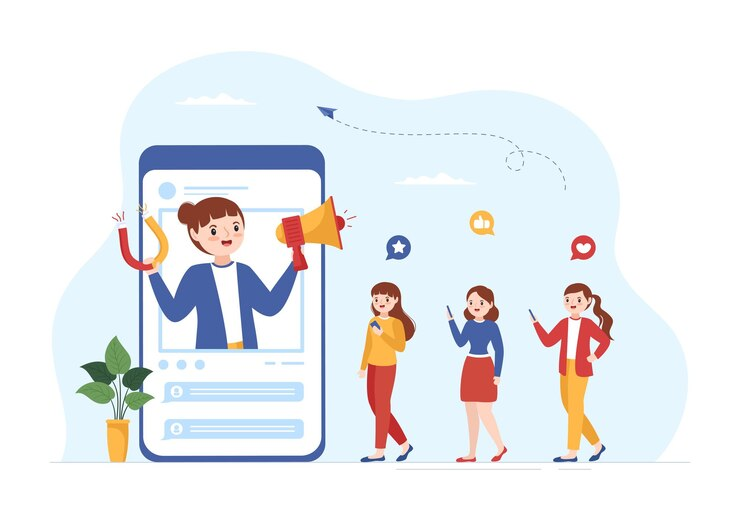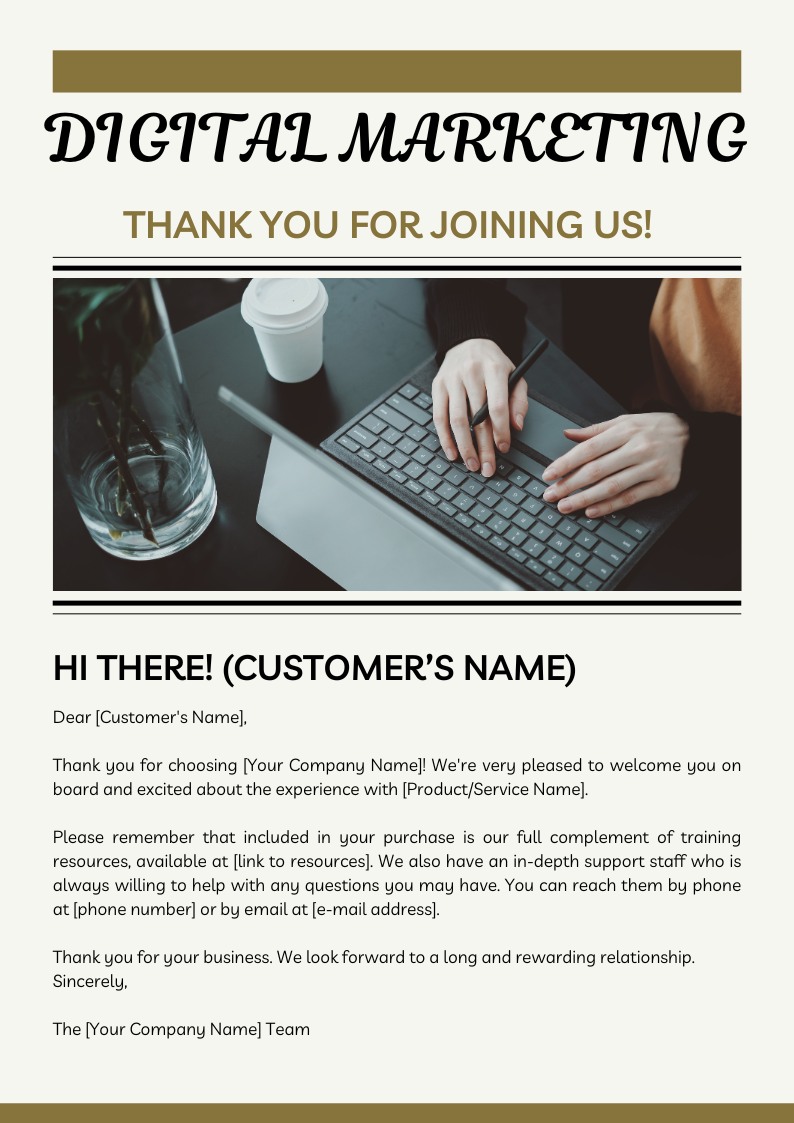15 July 2024 |
By - Sudha Mariappan

In the heady rush of closing a sale, it is easy to feel that the real work is done.
It’s good to feel satisfied that the major part is done, but here's the secret to which successful salespeople are privy: the magic really happens after the deal is sealed.
The key to long-term success is building lasting relationships with customers, and the key to that is an effective follow-up.
Wouldn’t you want to keep your customers intact after they’ve had a buying experience with you?
This is a post on the incredible power of post-sale communications.
We're going to discuss why follow-up is so important and ways to use it in build trust, making sure customer satisfaction follows through, and ultimately make them yearn for more.
Why Follow-Up plays a major role in sales:
Think of a sale not as an endpoint but as a real beginning. You would not just leave a new friend standing there after introducing yourself, similarly, leaving your customers after making a sale is definitely a way to lose business. There are so many sales techniques that we use to increase the revenue and close the deal.
Here's why follow-up isn't optional in your sales strategy:
Losing customers is expensive. It's far more expensive to gain new customers than to retain current ones. Based on a study by Frederick Reichheld of Bain & Company in 2024, a 5% increase in customer retention will boost profits by 25-100%. Following-up with people gives them the assurance that you genuinely care for them and your business, and this really leads to repeat business.
Happy customers become brand advocates. If they are delighted with your product or service, they are more likely to recommend it in their network. A 2024 Temkin Group report revealed that customers who are loyal to a brand recommended the brand three times more than others. With follow-up and satisfaction, you turn customers into brand champions for word-of-mouth marketing to bring new business for you. You have to learn strategies to keep your customers happy.
It not only develops trust but also strengthens relationships. Communication after the sale is proof of how much you are committed to their success. Follow-up allows addressing concerns, answering questions, and offering more support, thereby building trust and creating a long-term relationship in which customers will feel valued and supported.
Provides valuable feedback. Follow-up is not about you speaking, it's about listening. Make use of this opportunity to get feedback on your customers’ experience. This will likely be useful in understanding them better and thus help you in enhancing your product or service, and in customising future interactions.
By following up consistently with them, you make your customer feel important. Following up with your clients will certainly ensure very high customer satisfaction while at the same time promoting your business as a worthy and trustworthy place for all their needs.
Expressing Gratitude & Building Trust with a Simple "Thank You":
You get caught in a whirlwind of sales but forget how a simple "thank you" can impact a customer. Making time to be thankful really helps in establishing trust and creates a very positive relationship with the customer.
You can show your gratitude by:
Personalising it. A simple email of thanks to the "valued customer" is one dimensional and mundane. Use your customer's name, and mention the product or service they purchased. Your customer will definitely feel special.
Highlight what they'll gain. Let them know the value they are deriving from their purchase. Did you provide free training? Mention it. Are there resources available to them for continuing support? Let them know.
Express your availability for support. Be sure to reassure them that you are there to ensure they get the most out of their purchase. Offer specific channels for them to reach you in case they have questions or need assistance.
Here is an example of a personalised thank you email:

The power of a well-crafted thank-you email goes way beyond simple courtesy. It sets a positive tone for customer experience, demonstrates your commitment to their success, and lays the groundwork for further engagement.
Remember, follow-up isn't a one-time event. It's a process that keeps developing relations and building customer loyalty.
How to keep your customers on your toes:
The first "thank you" is just an opening move to create a long-term relationship with your customer. Be it in continuing the support or value that keeps them engaged, it proves you are invested in their success, not in one sale.
Here are some ways to do this:
Provide helpful resources. Make sure that the customer has everything in need to get maximum value from your product or service. It can consist of detailed user manuals, video tutorials, FAQs, or even a knowledge base. Keep them up-to-date with new information and common problems.
Proactive outreach. Be the first one to reach. Don't wait for them to contact you with questions. Schedule follow-up calls or emails to check in with them, see how they're doing, and determine whether they need any help. This proactive approach keeps them close and may quickly nip problems in the bud. If you want to know about the best outreach strategies, you can check our blogs.
Provide exclusive content and offers. Reward your loyal customers with exclusive content or offers in the form of early access to new features, discounts on future purchases, or invitations to special events. These are some of the incentives that will make customers feel good about doing business with you and continuing to engage with you.
Personalize the communication. Move away from generic marketing messages. Customers' information can be utilised in personalising your communication by content and particular offers to their needs and interests. This proves that you care about them as an individual, and it will likely keep them interested in your brand's offer.
An example of how you can provide ongoing support by means of a knowledge base:
Suppose you are a vendor of exercise equipment. Your website could hold a very well-detailed knowledge base containing articles and videos on:
- Assembly instructions of various apparatuses
- Exercise programs on various goals
- Tips on how to properly take care of the equipment to keep it running
- Troubleshooting guides for common issues
With this kind of information at their fingertips, you empower your buyer and let them know that you're interested in them long-term. In most cases, follow-up support is not just about fixing problems but proactive resources and advisors to the customer.
Read Also: Is Your Marketing Stuck in 2023? Forget everything you know,
and check out these digital marketing trends for 2024.
Turn Your Customers into Advocates:
The real success story of your sales venture will be turning your customers into advocates.
Delighted customers are your most potent salespeople. Keep on offering great service and value, and you will make them brand enthusiasts who will recommend your product or service to their circles more willingly.
Here is how you can spur positive word-of-mouth:
Provide top-notch customer service that includes extra efforts in solve problems quickly and effectively. Empower your customer service team to come up with creative solutions that will leave the customer heard and valued.
Get feedback from the customer. Obtain regular feedback from the customers regarding their experience. You could do this through email campaigns, surveys or simple polls you share on your social media channels. Continue to listen actively to the feedback since it demonstrates your genuine interest in customer satisfaction, and positive word-of-mouth will follow.
Run referral programs. Motivate existing customers to refer your product or service to friends and family. It may be through discounts, reward points, or exclusive offers. Such programs are a way to onboard new customers at a very low cost by trust and positive word-of-mouth. In order to run a successful rewards program, you need to keep track of all of the referrals being made.
Reward and recognize brand advocates. Be sure to thank them publicly for the many kinds of positive mentions and referrals. This can be done by means of social media shoutouts, customer testimonials on the website, or personal thank-you notes. This makes them feel that their efforts are recognized, extending their loyalty and probably creating more word-of-mouth.
One of the greatest marketing weapons is a strong network of brand advocates. Of course, after getting back to customer satisfaction and creating brand experience, it ultimately turns your customers into committed brand supporters and means to organic growth and new business.
Conclusion: In the heat of the sales environment, it's very easy to move on to the next opportunity. True success comes when you build long-term relationships with your customers. If you prioritise follow-up after the sale, continue to be supportive, and work to have them advocate for your brand, you're making a unit of loyal customers that will help sustain your long-term growth and profitability.
Analysing your current follow-up strategy will greatly enhance your customer retention. You need to make sure whether you're working on engaging the customer after the sale, giving them the tools and resources to be successful. These strategies mentioned in the blog will help you turn these satisfied customers into loyal brand advocates who will keep your business thriving.
Read Also: Get Your Customers Talking! A step-by-step Guide to Buzz-worthy Marketing Strategy
Great relationships aren't built in a day, they take much time and effort. But the benefits make it all worth it. Reap the reward of investing in your customer relationships today for years to come!
Make sure to check out our sales blog series on our website. Connect with us at info@ntogendigital.com and subscribe to us for more such blogs.
KEY TAKEAWAYS:
- The actual work begins after making a sale. The challenge is to continue to build a relationship with every customer over a period of time.
- Follow-up support sustains customer satisfaction, and actually, your customers will act as ambassadors to spread good words about your business.
- Relationship building is not limited to the sale. Post-sale communication builds trust and strengthens relationships. It demonstrates your concern for customer success.
- Expressing gratitude by nice, individualised “thank-yous” reinforces positive experiences and generates trust with customers.
- Unique content and personalised communication are huge drivers of customer loyalty and engagement.
- Continuous guidance through resources like user manuals and tutorials empowers customers and suggests commitment to the long term.